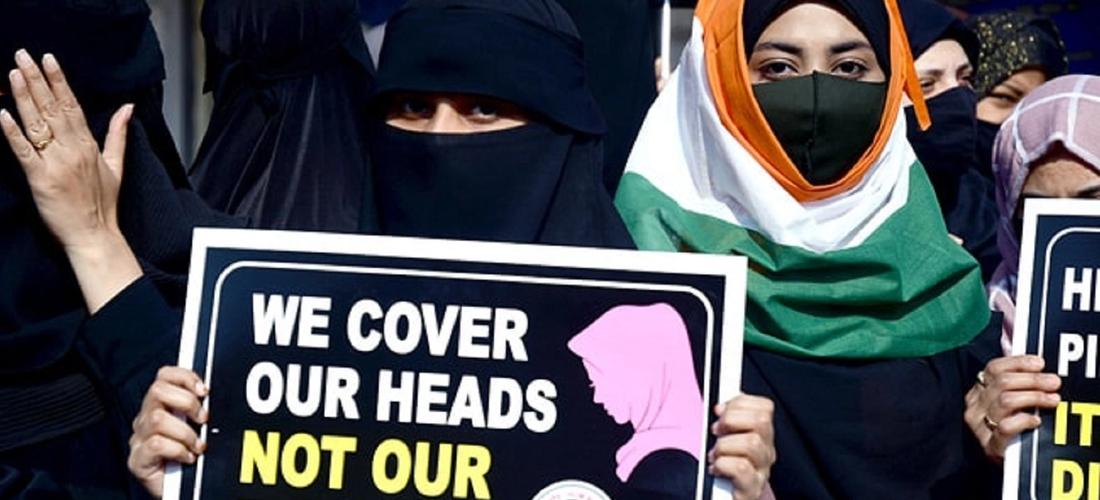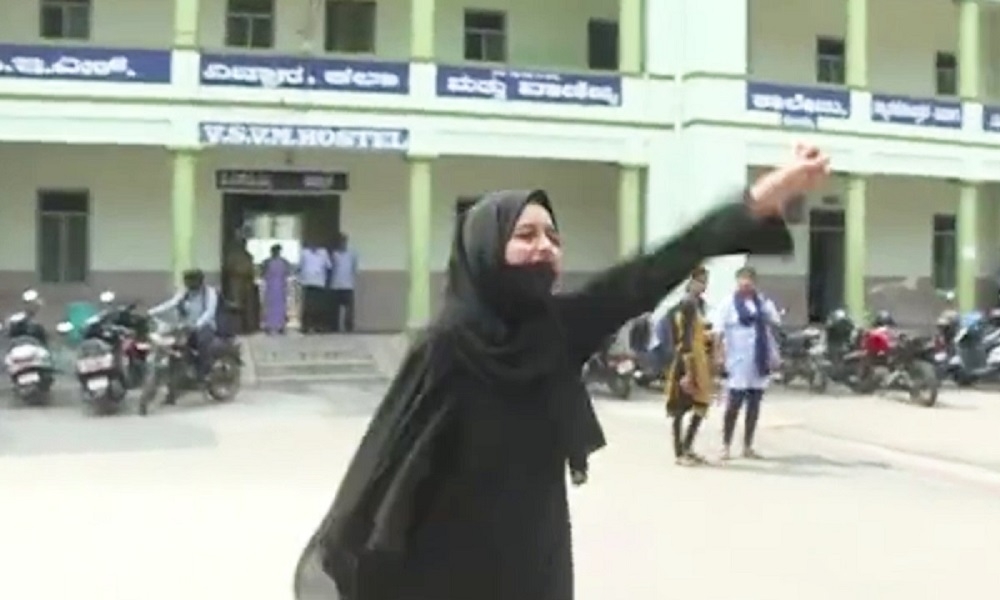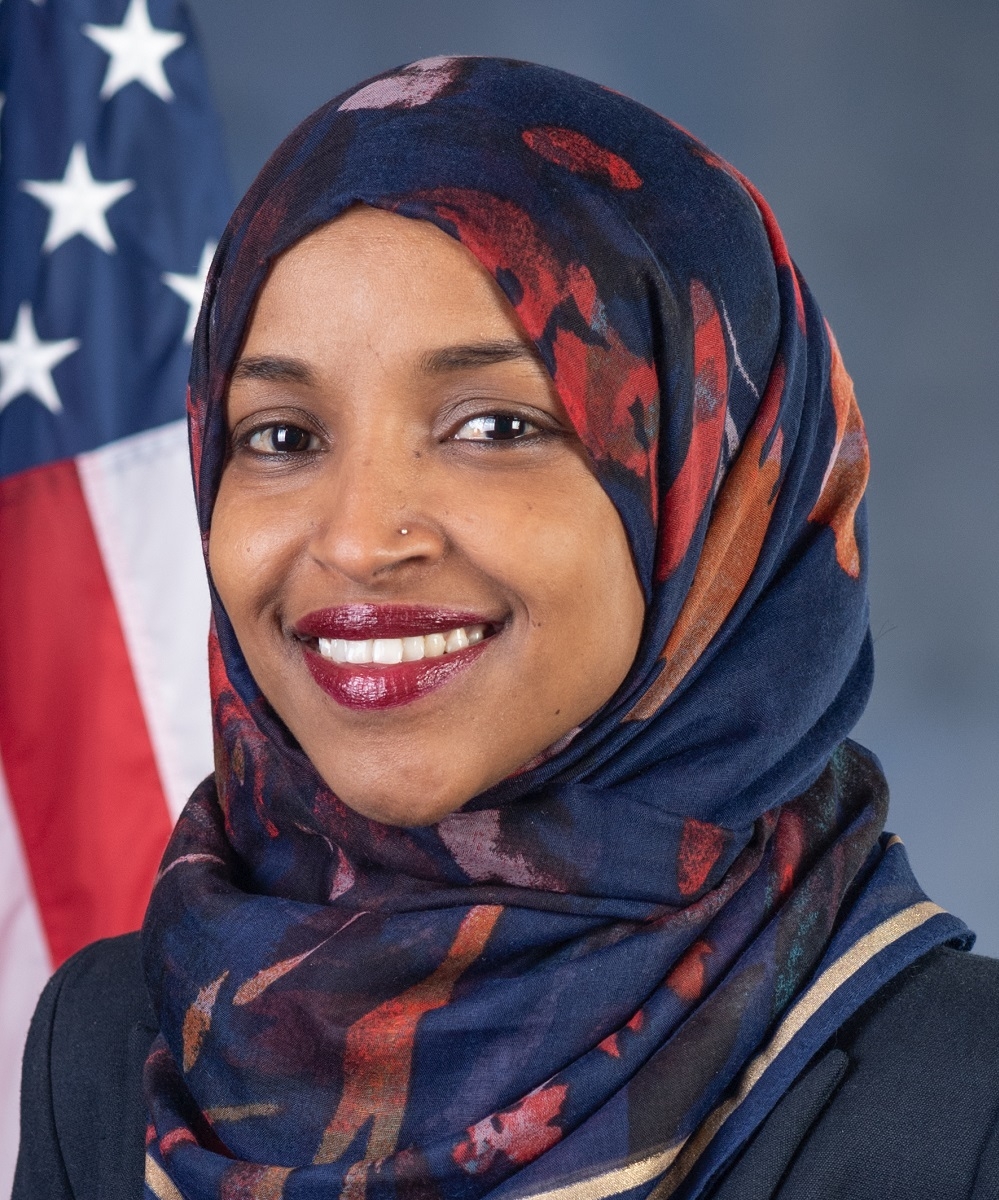Why You Should Care about Hijab Bans & Growing Islamophobia in (Karnataka) India
Current Events
|
Feb 18, 2022
|
5 MIN READ

Image source: NDTV, Twitter
First of all, don’t call it a hijab row.
Hena Zuberi, director of (Washington) D.C. operations for Justice for All, is very clear about that.
“This is not a fight between equals. This is a state-sponsored oppression of a religious minority in a country with two genocide alerts. Indian state-sponsored media wants to blame the victims for creating ‘disharmony.’ We cannot share that narrative but must actively dismantle it,” she says, in reference to the growing conflict in the Indian state of Karnataka, where Muslim female students have been harassed and banned from attending classes due to their hijab.
Targeted violence against Muslims and continued conflict in India has been on the rise for the past several years, and it’s against this backdrop that a situation arose last September at an Indian college preparatory school in Udupi, Karnataka, where several Muslim students weren’t allowed to attend classes and were marked absent due to their wearing of hijab.
What’s happening in Karnataka, India? Check out our Instagram post breakdown:
From there the story grew, as the students continued to wear hijab (which they and many female Muslim students before them had done so without any issue), moving the school to ban it saying that it violated their dress code. Parents of the students filed a petition against the ban, and a local court temporarily upheld the ban. Currently the courts haven’t issued a final ruling and are still hearing testimony on the case.
The story garnered national attention when a video of student Muskan Khan went viral, as she defiantly walked away, shouting “Allahu Akbar,” from a group of Hindu men, who were flanking her and harassing her on the grounds of her college.
Watch the viral video of Muskan Khan in Karnataka, India.
“Girls have been wearing hijabs in India for decades, and none of this has happened,” says Hena in an interview with Haute Hijab. “This is classic textbook hate speech and violence against them.”
The courts usually maintain the status quo in situations like this, she says, meaning usually they would have the students continue going to school until a decision is made. “Here they went against the status quo. They banned [the female Muslim hijab-wearing students] from going to school and even [temporarily] closed down schools.”
"What’s scary for me is to see Indian media … They all have the same talking points. When you study genocide [and] hate speech – and it’s called ‘targeted speech’ – that’s the language that they’re using. What they’re saying is that it’s the victim’s fault. It’s these people’s fault for creating a ‘row’ about this. The talking points that they’re using are these future scenarios to portray these girls as a threat. They’ll say, ‘Next they’ll ask for Jummah off. They’ll ask for halal in the cafeteria. Then they’ll object to your Gods.’”

Muskan Khan; image source: YouTube
Why Should American Muslims Care About This?
The fight for freedom to practice one’s religion is not lost on Muslims in America. Even in this country, where religious freedoms are strongly protected, Muslims (along with other minority religious groups) have faced many forms of discrimination over the years. One example is the pushback against religious-based head covering bans or waiver requirements in athletics (and other areas of life), against which athletes have fought on basketball courts, soccer pitches, cross country running tracks, boxing rings, gyms, volleyball courts and more.
From basketball player Bilqis Abdul-Qaadir to high school volleyball player Najah Aqeel, the message from Muslim women has been clear: You can’t ban us. We should be able to play and respect our religion.
Hijab and religious attire bans as well as religious discrimination in general is a global problem. Here at Haute Hijab, we’ve reported on it numerous times with stories about hijab bans in France, Quebec (Canada) and here in the United States.
“I frame this around global Islamophobia,” says Hena. “Especially after the ‘war on terror,’ language that started here in the United States is being used across the world to target Muslims. It’s being used in Sri Lanka under the prevention of terrorism act there, in Rohingya. [These are] attacks on our basic religious activities. That’s why you should care.”
In October of 2021, Representative Ilhan Omar (D-MN) and Jan Schakowsky (D-IL) introduced the Combating Global Islamophobia Bill, which (if passed) will require the State Department to “create a Special Envoy for monitoring and combating Islamophobia, and include state-sponsored Islamophobic violence and impunity in the Department's annual human rights reports.”

Rep. Ilhan Omar (D-MN)
“Under the Global Islamophobia Bill (which the House has passed and is now making its way through the Senate), it would help in countering [Islamophobia and things like religious headwear bans] long term,” Hena says. “People’s interests flare up when things like [the situation in Karnataka] happen, and then it dies. We can’t let that happen. Hijab rights are human rights. And, this isn’t a simple row over hijab.”
At a virtual rally organized by Justice for All last week in support of Muskan Khan and for women’s educational and hijab rights, Rep. Omar spoke about the importance of raising awareness about what is happening in India. “We’ve seen this play out throughout history. The othering of your neighbors can be deadly.”
“I was raised in a country where when I was little, I was banned from wearing hijab [in order to get an education]. For others, it’s made compulsory [to wear hijab]. Women should have the right to choose,” she says.
Simply talking about upholding religious liberty and minority rights is one thing, says Rep. Omar. “But [the world also has to] forcefully uphold this.”
For all of us at Haute Hijab, the ability and right to wear one’s hijab or religious head covering is very important because we know that one’s ability to get an education, engage in sports, run a company, be a teacher, care for one’s family, work in STEM, or whatever, is limitless and unaffected by clothing choices. It comes down to a woman’s ability to decide for herself what makes her feel comfortable and confident.
Learn more about our #CantBanUs campaign here, and how you can share your story and offer support.
Subscribe to be the first to know about new product releases, styling ideas and more.
What products are you interested in?

